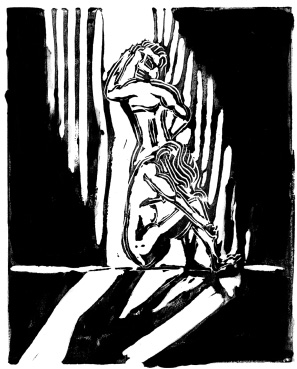
Isn’t it true that while warfare most often begins with a declaration, dialogue, including the dialogue that inevitably follows war, is best begun with a question? So wouldn’t it be better to start with a question? Could the use of a question instead of a declaration lead to skipping the war part?
For example, wouldn’t it have been more productive, perhaps even have averted eight years of bloodshed, if in 1776 Thomas Jefferson, rather than writing a Declaration of Independence, had written a Questioning of Colonial Ties? Did Jefferson start off with “when,” even though he didn’t use it as a question, because “When?” is the favorite question of impatient revolutionaries? Is it redundant to call revolutionaries impatient? Is it the lack of patience that makes them revolutionary? Instead of beginning “When, in the course of human events, it becomes necessary for one people to dissolve the political bonds which have connected them with another,” what if he had begun: “When, in the course of human events, does it become necessary for one people to dissolve the political bonds which have connected them with another?”?
“When?”
But did he want to play that old game of trying to get an Englishman to answer a question? Was the Declaration founded in the knowledge that the English don’t use declarative sentences—that the best answer he could have hoped for would have been: “Now might be the right time, mightn’t it?”?
“How does this end?”